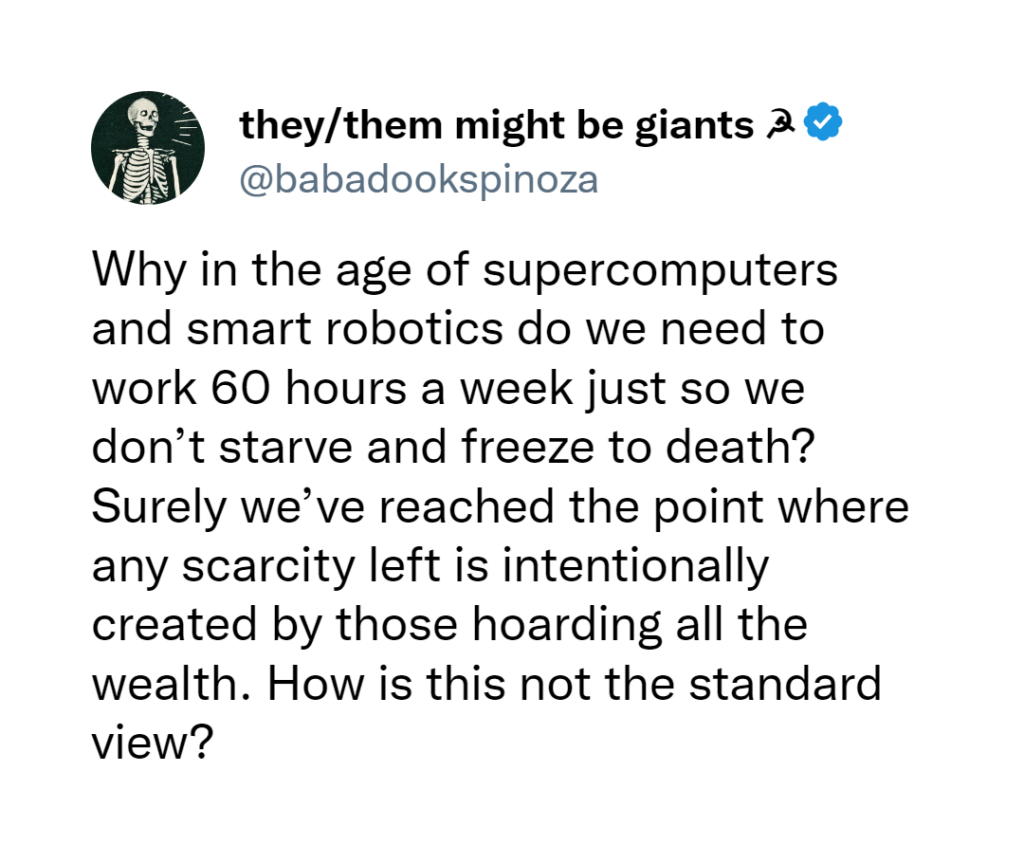Good Monday Morning
It’s May 1, May Day, celebrating workers’ rights. The Fed Open Market Committee meets on Wednesday. Experts are divided about whether rates will be increased for the tenth time since the beginning of 2022 or if there’s been enough friction applied.
Today’s Spotlight is 1,098 words–about 4 minutes to read
Two features debut this month
- Practical AI, our new look at how you can leverage AI, will appear after 3 More Stories to Know starting this month.
We’ve been to this hypergrowth rodeo before, and the rush to control the internet’s next phase has revved up development in every possible industry. We’re dedicating a special area to generative AI so that its constant news doesn’t crowd out other digital news. - Spends & Trends adds TikTok data next week: Hashtags, Songs, and Creator data organized by engagement.

Spotlight On … Hide Your Location Data
Location data is purchased and collated with personal information more often than most Americans realize. Data brokers claim to have 75,000 data points on the average American consumer. Many of those data sets are repackaged at the request of marketers with data combined in new, unique ways.
According to news reports last month, a conservative Catholic group spent millions of dollars tracking priests who used gay dating apps. A lay group spent $4 million legally purchasing the data, then shared the findings with bishops. That kind of punitive tracking led to the outing of an administrator for the U.S. Conference of Catholic Bishops and other measures that destroyed the illusion of privacy.
Relying on the industry to police itself harms individuals, but can also create significant national security issues. In 2018, we wrote about Strava, a data company that aggregates data from fitness trackers. Strava reporting revealed the existence of military and other sensitive sites even in countries where the U.S. military was fighting.
Now we’ve learned that a similar situation arose last week with hiking data from AllTrails. The app revealed the confidential whereabouts of a former senior Biden administration official. It included travel information to a residence and the White House. A security researcher also tracked the official’s activity including actual hiking trail locations and date and time information.
Some states are acting now to restrict location data without waiting for federal lawmakers. Washington Gov. Jay Inslee signed a bill last week that shields abortion data of all types, including location data. A first in the U.S., the bill also allows consumers to control their own data even after it’s been captured by tech companies.
Keep reading & we’ll show you how to turn off some of the location data tracking on your phone before it’s sent back to Google or Apple.
3 More Stories to Know
1) Windows 10 users got word last week that the software will only receive security updates until Oct. 14, 2025. No new features are planned for Windows 10, and the company advises consumers to switch to Windows 11 before then.
2) You may want to reconsider if you already embraced Google’s 2FA new cloud backup feature. This story shares a researcher’s work claiming that the account details are unencrypted when transmitted to Google. That means all of your account information would be available to anyone searching for them with a subpoena.
Separately, cybersecurity journalist Brian Krebs reported that Salesforce’s Community sites can leak personal information. He was able to demonstrate to Vermont officials that he could access names, Social Security numbers, bank account numbers, and other highly confidential information.
3) The European Union is considering legislation that would require AI companies such as the makers of ChatGPT to disclose all copyrighted materials used in training their models.
Waiting in the Wings
- What you can really do with those chatbots
- How algorithms are automatically denying medical claims
- The May debut of “Practical AI”
Put your email address in the form at this link and you’ll get a free copy of Spotlight each Monday morning to start your week in the know.
If you’re already a free subscriber, would you please forward this to a friend who could use a little Spotlight in their Monday mornings? It would really help us out.
Trends & Spends


Did That Really Happen? — Adam Schiff Not Being Impeached … Because He Can’t Be
A video traveling around on Facebook characterizes Ohio Rep. Jim Jordan as “brave” and says that he has “shut down” Rep. Adam Schiff, who will be impeached. The hoax includes clips of a hearing four years ago that shows a Republican representative demanding that Schiff resign. There are two clips of Rep. Jordan, but neither has anything to do with Schiff. House rules don’t allow for representatives to be impeached, and no such action is happening.
Following Up — Revisiting Amazon
We featured Amazon two weeks ago and wrote that their cost cutting measures were largely performative because Wall Street was concerned about Amazon’s growth rate. Events last Thursday played out as we projected. Revenue growth at the AWS cloud unit was 11%, down from 16% the previous quarter, and the lowest for that unit in its eight year history.
Amazon beat overall expectations and saw profit increase 50% over what analysts expected. Ecommerce sales and the advertising division both beat estimates, but Amazon stock got hit as soon as the AWS numbers came out.
This Statista chart does a great job showing the importance of AWS to Amazon’s future.

Protip — Hide Your Location Data
You can stop your phone from being a blabbermouth by following these step-by-step instructions to change your Apple Maps and Android settings.
Screening Room — Calm Mindfulness App
Science Fiction World — ChatGPT & Google Play Their Own Sims
Using ChatGPT’s models and Google engineers, researchers created an online Sims-like environment where generative AI controlled 25 player characters. Those characters could interact with each other as well as human players. Those AI characters did things like independently planning parties while inviting others to join and other “believable plans, reactions, and thoughts…”
Coffee Break — A New (Short) Daily Game
Where in the USA Is This is from The Pudding, some of the best data visualization people online. They’ve created a game that gives you up to 5 guesses to choose the site of images harvested from Google Maps’ Street View. The maps are usually stripped of street signs and building names, but you can use other visual clues to guess the location. After each guess you’re told how close you are, but not the direction. It’s a lot of fun.
Sign of the Times









